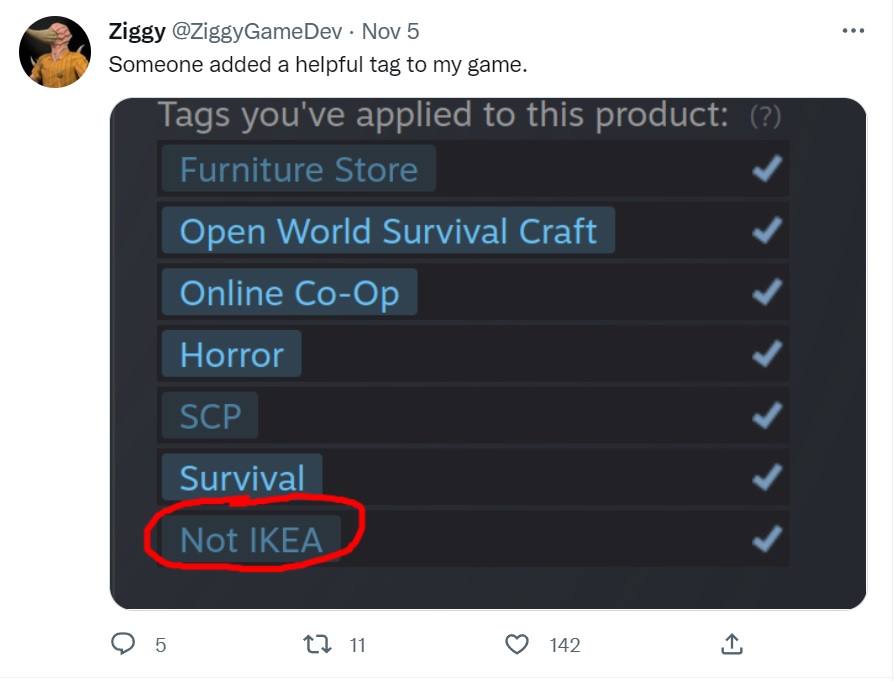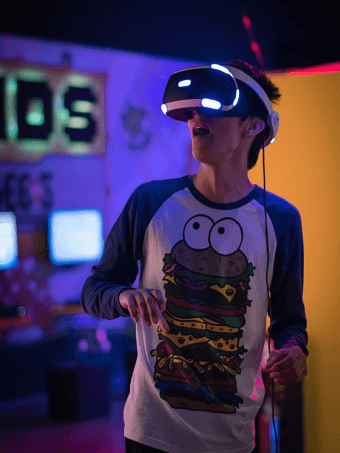Details of the case
Swedish furniture giant IKEA has sent a solo indie developer studio Ziggy a cease and desist letter, demanding he makes changes to his unreleased survival horror game set in an Ikea-like furniture store, according to Kotaku. A cease and desist letter is a document sent to an individual or business to stop the alleged illegal business activity. The right to issue cease and desist letters is one of the privileges of registered trademark owners, as it offers a quick and cheap resolution of any potential disputes and trademark infringement cases.
"The Store is Closed" is a coop survival game developed by Jacob Shaw. Players will find the premise of "The Store is Closed" very simple. The player is stuck in an infinite IKEA-like furniture store and must survive against its mutant staff. Players can explore the store with their friends or alone, using the furniture to craft weapons and fortifications. They will need those defenses to fend off mutant employees. The Kickstarter campaign for The Store is Closed was launched in September and quickly passed its initial goal, which was either very humble or intentionally set low so it would easily be reached. The goal was $11,377, and the project has already pulled in $94,791 with 2,086 backers supporting the project.
The main claim of the case is that the furniture store in the game looks confusingly similar to IKEA. Jacob Shaw disputes that he designed any furniture with Ikea in mind. "I bought generic furniture asset packs to make this game," Shaw said, meaning that this is furniture that can be featured in any game for a price. The argument, however, refers to the fact that multiple press sites have made an association between the location in the game and IKEA by using titles such as "Co-Op Horror Game The Store is Closed is About Being Trapped in an IKEA".

@ZiggyGameDev Although the claims are not sufficient to completely take the game down, it may significantly postpone the release of the project that has received a tremendous amount of support over the past months. The developer has the option to claim that usage of designs that might resemble the brand assets of IKEA is a “parody,” with parody and satire protected at the highest levels of American law through the application of First Amendment freedom of speech rights. However, courts will often require actual commentary to be made in order to extend such protections.
Indie games and trademarks
The main purpose of a trademark is to distinguish the company’s goods and services from those of its competitors. In practical terms, trademark law concerns itself with marketing, branding, and business operations, and is concerned with avoiding confusing consumers as to the source of goods and services. Even if the game does not use the exact same names or designs as another brand, another company can still claim infringement based on the other similarities. So if you are creating a game that shares some similarities with the brand assets of another company, you will often want to avoid using such assets, or at least introduce some significant modifications in the game to avoid dealing with the consequences of trademark infringement.
Trademark protection offers numerous benefits for indie game developers. If you would like to receive professional advice on trademark registration for assets of your game, don’t hesitate to schedule a free consultation with us. At Trama, we’ve already registered over 7,200 trademarks, providing professional end-to-end service to cover all your trademark needs.


